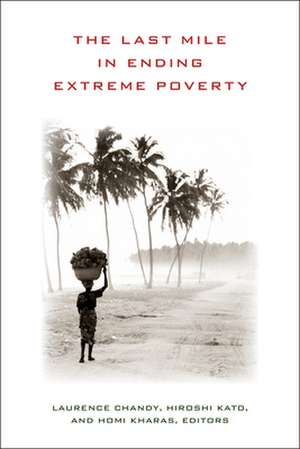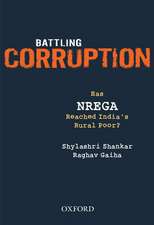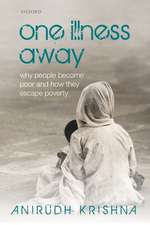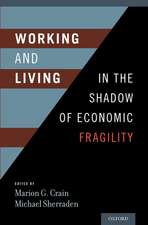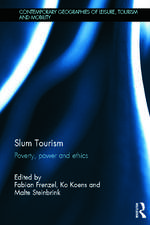The Last Mile in Ending Extreme Poverty
Editat de Laurence Chandy, Hiroshi Kato, Homi Kharasen Limba Engleză Paperback – 20 iul 2015
Viewed from a global scale, steady progress has been made in reducing extreme poverty—defined by the $1.25-a-day poverty line—over the past three decades. This success has sparked renewed enthusiasm about the possibility of eradicating extreme poverty within a generation. However, progress is expected to become more difficult, and slower, over time. This book will examine three central changes that need to be overcome in traveling the last mile: breaking cycles of conflict, supporting inclusive growth, and managing shocks and risks. By uncovering new evidence and identifying new ideas and solutions for spurring peace, jobs, and resilience in poor countries, The Last Mile in Ending Extreme Poverty will outline an agenda to inform poverty reduction strategies for governments, donors, charities, and foundations around the world.
Contents
Part I: Peace: Breaking the Cycle of Conflict
External finance for state and peace building, Marcus Manuel and Alistair McKechnie, Overseas Development Institute
Reforming international cooperation to improve the sustainability of peace, Bruce Jones, Brookings and New York University
Bridging state and local communities through livelihood improvements, Ryutaro Murotani, JICA, and Yoichi Mine, JICA-RI and Doshisha University
Postconflict trajectories and the potential for poverty reduction, Gary Milante, SIPRI
Part II: Jobs: Supporting Inclusive Growth
Structural change and Africa's poverty puzzle, John Page, Brookings
Public goods for private jobs: lessons from the Pacific, Shane Evans, Michael Carnahan and Alice Steele, Department of Foreign Affairs and Trade, Government of Australia
Strategies for inclusive development in agrarian Sub-Saharan countries, Akio Hosono, JICA-RI
The role of agriculture in poverty reduction, John McArthur, Brookings, UN Foundation, and Fung Global Institute
Part III: Resilience: Managing Shocks and Risks
Environmental stress and conflict, Stephen Smith, George Washington University and Brookings
Toward community resilience: The role of social capital after disasters, Go Shimada, JICA-RI
Social protection and the end of extreme poverty, Raj Desai, Georgetown University and Brookings
Contents
Part I: Peace: Breaking the Cycle of Conflict
External finance for state and peace building, Marcus Manuel and Alistair McKechnie, Overseas Development Institute
Reforming international cooperation to improve the sustainability of peace, Bruce Jones, Brookings and New York University
Bridging state and local communities through livelihood improvements, Ryutaro Murotani, JICA, and Yoichi Mine, JICA-RI and Doshisha University
Postconflict trajectories and the potential for poverty reduction, Gary Milante, SIPRI
Part II: Jobs: Supporting Inclusive Growth
Structural change and Africa's poverty puzzle, John Page, Brookings
Public goods for private jobs: lessons from the Pacific, Shane Evans, Michael Carnahan and Alice Steele, Department of Foreign Affairs and Trade, Government of Australia
Strategies for inclusive development in agrarian Sub-Saharan countries, Akio Hosono, JICA-RI
The role of agriculture in poverty reduction, John McArthur, Brookings, UN Foundation, and Fung Global Institute
Part III: Resilience: Managing Shocks and Risks
Environmental stress and conflict, Stephen Smith, George Washington University and Brookings
Toward community resilience: The role of social capital after disasters, Go Shimada, JICA-RI
Social protection and the end of extreme poverty, Raj Desai, Georgetown University and Brookings
Preț: 390.23 lei
Nou
Puncte Express: 585
Preț estimativ în valută:
74.68€ • 77.68$ • 61.65£
74.68€ • 77.68$ • 61.65£
Carte tipărită la comandă
Livrare economică 14-28 aprilie
Preluare comenzi: 021 569.72.76
Specificații
ISBN-13: 9780815726333
ISBN-10: 0815726333
Pagini: 320
Ilustrații: black & white illustrations
Dimensiuni: 152 x 229 x 28 mm
Greutate: 0.73 kg
Editura: Brookings Institution Press
Colecția Brookings Institution Press
ISBN-10: 0815726333
Pagini: 320
Ilustrații: black & white illustrations
Dimensiuni: 152 x 229 x 28 mm
Greutate: 0.73 kg
Editura: Brookings Institution Press
Colecția Brookings Institution Press
Notă biografică
Laurence Chandy is a fellow in the Brookings Global Economy and Development program and the Development Assistance and Governance Initiative. His research focuses on global poverty, fragile states, and aid effectiveness.
Hiroshi Kato is the Vice President of JICA.
Homi Kharas is a Brookings senior fellow and deputy director of the Brookings Global Economy and Development program. Formerly a chief economist in the East Asia and Pacific Region of the World Bank, Kharas currently studies policies and trends influencing developing countries, including aid to poor countries, the emergence of a middle class, the food crisis, and global governance and the G-20. His most recent coauthored books are After the Spring: Economic Transitions in the Arab World (Oxford University Press, 2012) and Catalyzing Development: A New Vision for Aid (Brookings, 2011).
Hiroshi Kato is the Vice President of JICA.
Homi Kharas is a Brookings senior fellow and deputy director of the Brookings Global Economy and Development program. Formerly a chief economist in the East Asia and Pacific Region of the World Bank, Kharas currently studies policies and trends influencing developing countries, including aid to poor countries, the emergence of a middle class, the food crisis, and global governance and the G-20. His most recent coauthored books are After the Spring: Economic Transitions in the Arab World (Oxford University Press, 2012) and Catalyzing Development: A New Vision for Aid (Brookings, 2011).
Descriere
Viewed from a global scale, steady progress has been made in reducing extreme poverty—defined by the $1.25-a-day poverty line—over the past three decades. This success has sparked renewed enthusiasm about the possibility of eradicating extreme poverty within a generation. However, progress is expected to become more difficult, and slower, over time. This book will examine three central changes that need to be overcome in traveling the last mile: breaking cycles of conflict, supporting inclusive growth, and managing shocks and risks. By uncovering new evidence and identifying new ideas and solutions for spurring peace, jobs, and resilience in poor countries, The Last Mile in Ending Extreme Poverty will outline an agenda to inform poverty reduction strategies for governments, donors, charities, and foundations around the world.
